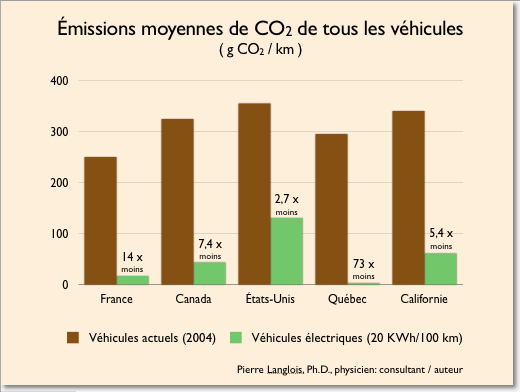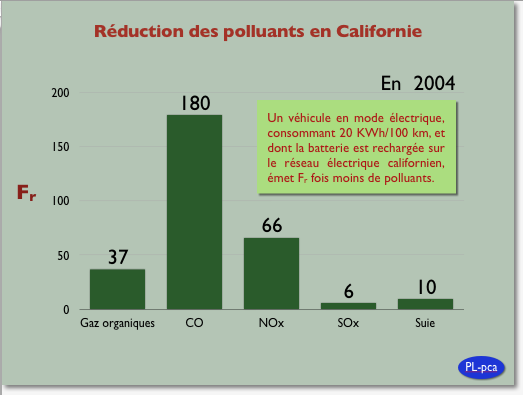Bonjour à tous
The 10 last June, I gave a lecture entitled Roll Without Oil. Today, I am sending you a few digital slides that I presented for the benefit of all. You will find all this data and more in the book I'm writing now.
First, after studying the various options, I come to the conclusion that the vehicles of the future will be plug-in hybrid electric vehicles. An excellent compromise is that they travel, on average across the entire vehicle fleet, 70% of kilometers in electric mode and 30% of kilometers using biofuel. The engine will be electric only and the engine will be connected to a generator on board, to recharge the batteries en route. This is called a hybrid series vehicle.
In fact I consider that cars and light trucks can travel 80% of their mileage in electric mode, which requires a battery capable of giving autonomy, in pure electric mode, 100 km per daily recharge. For medium and heavy trucks, I assume they will be able to travel 40% of their mileage in electric mode. The average for the complete fleet of vehicles giving 70% of the mileage in electric mode.
To evaluate the impacts of such a scenario, it is first necessary to evaluate the average power consumption of the plug-in hybrid electric vehicle fleet, when they only operate on their batteries. To do this, it is first necessary to establish the percentage of the different vehicles and their respective consumption of electricity at 100 km. The first slide below shows the result of my evaluation. I relied on the statistics of the French and US transport ministries. I assume that in a context of energy scarcity and high fuel costs, people will opt for more adapted vehicles if necessary, hence the 25% of small city cars. As for the consumption of each category of vehicles, I used the power consumption of different existing vehicles.
The end result is an average power consumption of 20 kWh / 100km for the entire fleet, when the vehicles only run on the electricity stored in their batteries.
Also, for all the graphs in this e-mail, I did not take into account that people were more involved in public transit, cycling, or carpooling. It's "business as usual" at the level of transport habits. These figures are therefore conservative.
In the second slide, I have multiplied 70% of the kilometers traveled by all the vehicles of different countries by 20 kWh / 100km, to obtain the electric consumption of the fleet of road vehicles, and I compared it with the electric consumption per inhabitant in these different countries. As can be seen, given Quebec's large electricity production, we would only need 5,4% of our current electricity consumption to meet demand! Let's not forget that a transition to plug-in hybrid electric vehicles will run from 15 to 20 years and that an increase in 5,4% power generation over such a period is no problem. In fact, we could recover about 10% of electricity consumed in Quebec if we installed geothermal heat pumps to replace 60% of heating, we would not need to build new dams.
As seen in the graph, Californians are those for whom a transition to primarily electrical mobility (70%) represents the biggest challenge. In their case, the abundant solar energy they have could play an important role, especially since it is already competitive in California, where electricity rates are higher. In addition, several studies have already shown that up to 20% of electricity can be recovered in the United States through energy saving measures, at a lower cost than building new plants.
Learn more about the author P.Langlois:
https://www.econologie.com/forums/pierre-lan ... t6554.html
https://www.econologie.com/forums/voiture-el ... t7716.html
https://www.econologie.com/rouler-sans-p ... -4160.html
https://www.econologie.com/forums/transport- ... t8306.html









